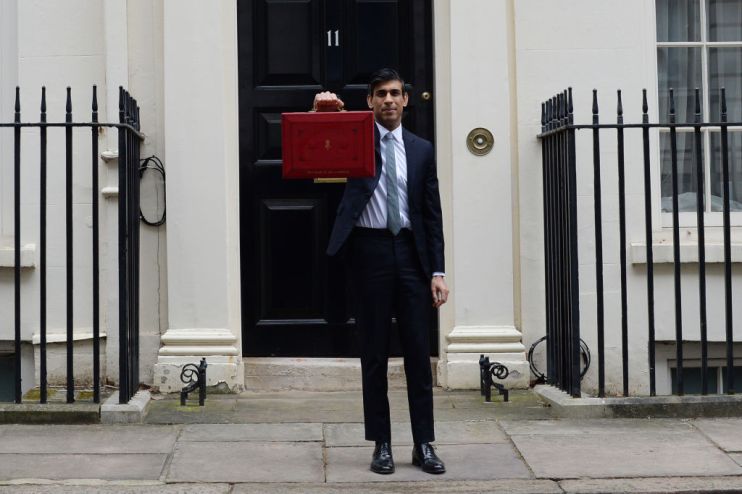Budget: OBR forecasts stronger than expected UK economic recovery

The UK’s economy will have a stronger bounce back from the coronavirus crisis than previously expected with unemployment set to peak at a far lower level, according to new economic forecasts from the government’s Budget watchdog.
Sunak said the Office for Budget Responsibility (OBR) now predicts the UK’s GDP will return to pre-crisis levels by the middle of next year – six months earlier than previously expected – and that GDP growth next year will be the highest since 1941.
Unemployment is also expected to peak at 6.5 per cent instead of the 11.9 per cent expected last July, according to the OBR.
Unemployment peaked at 8 per cent after the 2008 financial crisis.
OBR GDP Forecasts (% growth per annum)
| Year | Forecast (Nov 2020) | Outturn / forecast (Mar 2021) |
| 2020 | -11.3 | -9.9 |
| 2021 | 5.5 | 4 |
| 2022 | 6.6 | 7.3 |
| 2023 | 2.3 | 1.7 |
| 2024 | 1.7 | 1.6 |
| 2025 | 1.8 | 1.7 |
The OBR forecasts that the UK economy will grow this year by 4 per cent, by 7.3 per cent in 2022, then 1.7 per cent, 1.6 per cent and 1.7 per cent in the last three years of the forecast.
“Today’s forecasts show that our response to coronavirus is working,” Sunak said.
“The OBR now expect the economy to return to its pre-covid level by the middle of next year – six months earlier than they previously thought.
“That means growth is faster, unemployment lower, wages higher, investment higher, household incomes higher.”
Sunak will try to drive the UK’s economic recovery by stoking business spending in plant, property and equipment.
A new “super deduction” will see businesses able to claim 130 per cent of their tax bill in deductions for the next two years.
The Office for Budget Responsibility (OBR) has said the measure could boost business investment by 20 per cent, or £10bn, a year.
“Under the existing rules, a construction firm buying £10m of new equipment could reduce their taxable income, in the year they invest, by £2.6m,” Sunak said.
Sunak also said the Budget deficit would be £355bn for this fiscal year – 17 per cent of national income and the highest since World War II.
Next year it will be £234bn – 10.3 per cent of GDP.
“An amount so large it has only one rival in recent history – this year,” he said.
OBR Public Sector Net Borrowing (£bn)
| Year | Forecast (Nov 2020) | Outturn / forecast (Mar 21) |
| 2020-21 | 393.5 | 355 |
| 2021-22 | 164.2 | 234 |
| 2022-23 | 104.6 | 107 |
| 2023-24 | 100.4 | 85 |
| 2024-25 | 99.6 | 74 |
| 2025-26 | 101.8 | 73 |
Sunak said tax rises were needed to pay off more than £400bn of Covid spending this year that will result in the largest Budget deficit since 1941, which he said would be “the work of many governments, over many decades, to pay it back”.
Big business will be forced to pay off much of the Covid spending, with corporation tax raised to 25 per cent for companies with profits of over £250,000 from 2023.
Companies with profits of less than £50,000 will remain on the 19 per cent corporation tax rate, while there will be a sliding scale for companies with profits between £50,000 and £250,000.